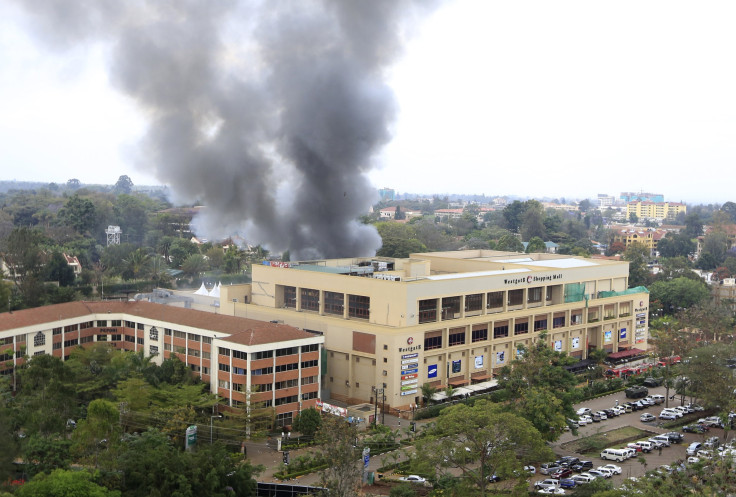Soft Targets: Kenya Shopping Mall Shootings Raises Fears Of Similar Atrocities In India

The mass shooting at an upscale mall in Nairobi, Kenya which killed at least five dozen people and wounded more than 200 others has raised fears in India that such massacres could be engineered in its own crowded shopping malls.
Indeed, Indian security experts have warned that the Nairobi massacre shares some similarities with the terror attacks that struck Mumbai in November 2008, which killed 164 people – both horrific episodes were well-planned by Islamic militants and targeted innocent civilians in areas of low security.
"The reaction [to the Kenya tragedy] is of complete shock and disbelief," said Sunil Duggal, head of 24-Secure, which provides security to several Indian malls, according to the Economic Times.
"After the siege at the mall in Kenya, we realize that there are high probabilities of a mall [in India] being attacked,” said Rajendra Kalkar, senior centre director of the exclusive High Street Phoenix shopping complex in Mumbai. “We are sensitizing our staff towards the seriousness of the matter.”
The Indian government is so concerned about a repeat of such tragedies that the Home Ministry plans to contact local police officials across the country to review their security arrangements in shopping malls and other public places, according to The Times of India.
"We [were] closely following the attack on the Nairobi mall, and are worried that our own malls, the security of which is left entirely to private security agencies, may be targeted next... the fact that [the] 26/11 [Mumbai 2008] strikes served as the template for the Kenya attack has only made the possibility real," a home ministry official told TOI.
"We may consider extending the [security] guidelines to cover shopping malls.’
One option the Home Ministry is considering is the placement of malls in several major cities, including Mumbai, Kolkata, Chennai, Delhi, Bangalore, Hyderabad and Ahmadabad, under one mega-police security umbrella. Under this arrangement, local police departments could receive extra financing to upgrade their security infrastructure.
Indian shopping centers have already increased security efforts since the 2008 attacks in Mumbai, but the incident in Kenya has raised awareness that more needs to be done.
"We have all learnt our lessons from the terrorist attack on the Taj Mahal hotel and Oberoi-Trident [in Mumbai] in 2008," Kalkar said.
"After that incident most of the malls braced up their security systems. We now rely more on technology than on people to avoid as much human error as possible."
Vishal Swara, managing director of SLV Security Services, which provides security at Indian shopping malls, told Economic Times "We are now reinforcing our training. We are bringing in new training capsules. The kind of background that the staff comes from, the training needs to be reinforced for it to be effective."
The Press Trust of India reported separately that the attack at the Kenya Westgate mall, which was carried out by militants affiliated with Somalia’s al-Shahbab terror group, might have been planned by a Pakistani man.
The Long War Journal noted that Abu Musa Mombasa, a citizen of Pakistan, works as al-Shahbabs's chief of security and training.
In addition, according to a report in the Jewish Telegraph Agency, Indian police officials in Mumbai have urged Jewish establishments in the city to upgrade their security over fears of renewed terror attacks by Islamic militants.
Jewish targets were victimized in the November 2008 attacks in Mumbai. JTA noted that there are at least 12 Jewish establishments in Mumbai, including the Nariman Chabad House, where six people were killed in the 2008 shootings. There are almost two dozen other Chabad houses in India.
NDTV reported that Yasin Bhatkal, the co-founder of Indian Mujahideen, told officials of the National Investigation Agency in New Delhi, that militants were surveying Jewish targets across Mumbai and elsewhere in India for possible attacks.
© Copyright IBTimes 2024. All rights reserved.




















